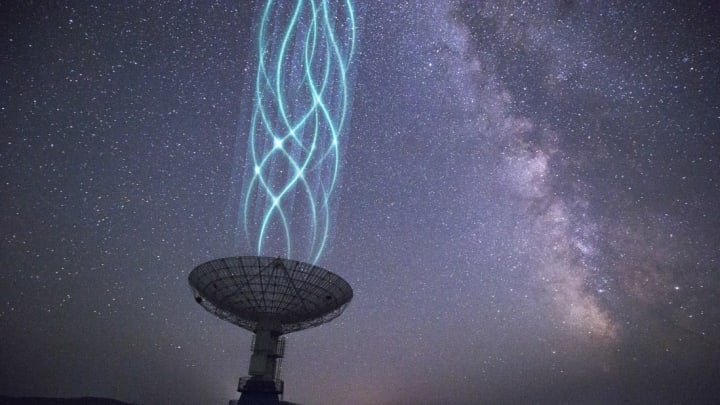If humans ever encountered extraterrestrials, would we be able to communicate with them? That was the question posed by linguists from across the country, including famed scholar Noam Chomsky, during a workshop held in Los Angeles on May 26.
Organized by a scientific nonprofit called Messaging Extraterrestrial Intelligence (METI), the one-day event entitled "Language in the Cosmos" brought together two camps that don't usually converge: linguists and space scientists. The event was held in conjunction with the National Space Society's annual International Space Development Conference, which featured the likes of theoretical physicist Freeman Dyson, Amazon CEO and Blue Origin founder Jeff Bezos, SpaceX's Tom Mueller, science fiction writer David Brin, and more.
Linguist Sheri Wells-Jensen, chair of the workshop, said in a statement that it's unlikely we'll ever come face to face with aliens or find ourselves in a "Star Trek universe where most of the aliens are humanoid and lots of them already have a 'universal translator.'" Still, scientists don't rule out the possibility of chatting with extraterrestrials via radio.
Chomsky, who's often regarded as the father of modern linguistics, was optimistic that extraterrestrial life forms—if they're out there—might observe the same “universal grammar” rules he believes serve as the foundation for all human languages. His theory of universal grammar posits that there's a genetic component to language, and the ability to acquire and comprehend language is innate. Chomsky argues that a random mutation caused early humans to make the “evolutionary jump” to language some 40,000 years ago through a process called Merge, which lets words be combined, according to New Scientist. (Not all linguists are convinced by Chomsky's theory.)
At the workshop, a presentation by Chomsky (of MIT), Ian Roberts (University of Cambridge), and Jeffrey Watumull (Oceanit) argued that "the overwhelming likelihood is that ET Universal Grammar would be also be based on Merge." They said grammar would probably not be the greatest barrier in communicating with aliens; rather, understanding their "externalization system," or whatever channel they're using to communicate, could be the greatest challenge.
Another presentation by Jeffrey Punske (Southern Illinois University) and Bridget Samuels (University of Southern California) drew a similar conclusion. Human languages have physical and biological constraints, some of which are grounded in physics, so it follows that extraterrestrial languages would be limited by the same laws of physics, the linguists said.
Douglas Vakoch, president of METI, said in a statement that these theories represent a "radical shift" for scientists working in the field, who have "scoffed at the idea of creating interstellar messages inspired by natural languages." Past radio messages sent out into space relied on math and science, in hopes that those principles are universal.
